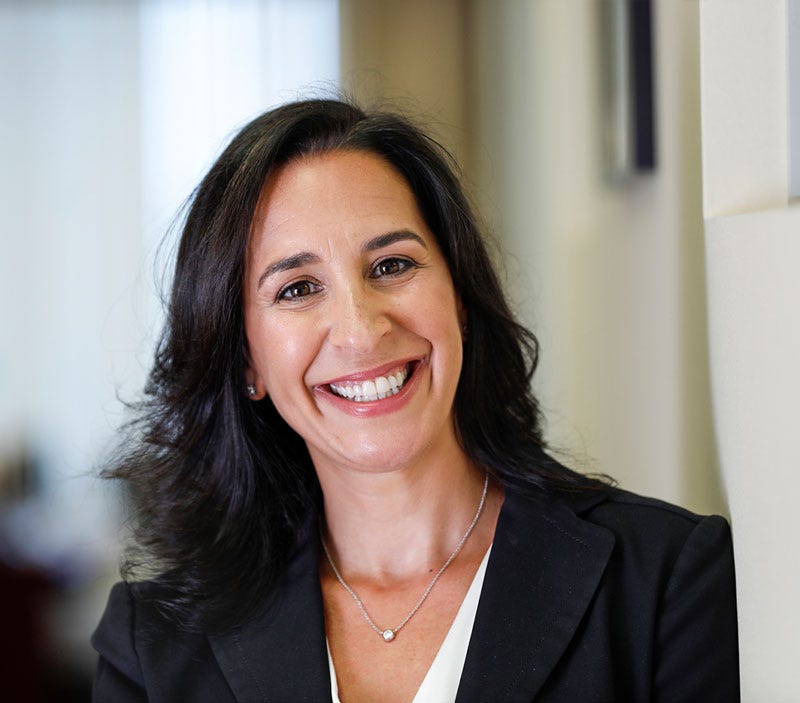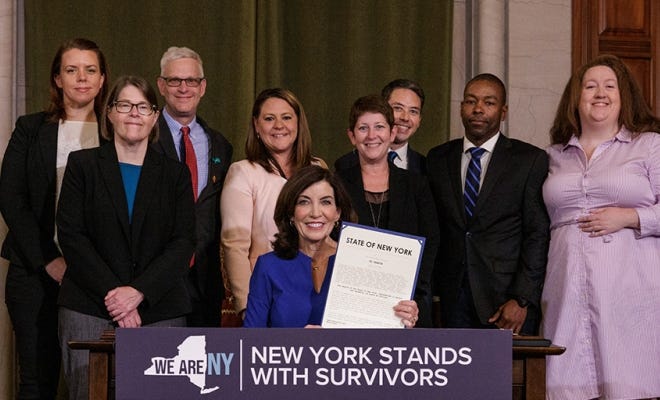URGENT: Only a Few Weeks Left. Share Everywhere
A Q&A with a top-rated attorney. Plus: You do NOT have to sign an NDA to settle your case
I’ll be traveling in the next few weeks so it’ll go a bit quiet here. If you write to me and don’t hear back, that’s why. Contact me anytime at MeTooAirlines at proton.me
ICYMI: I’ve unlocked the article about the book I’m working on. Email me if you’re willing to speak to me about SM’s life, career and crimes as part of the broader #MeToo-in-aviation conversation
The usual TW for discussion of rape, sexual assault and ephebophilia
At least FOUR women have told me they were assaulted and/or raped by American Airlines First Officer Sten Molin in the state of NEW YORK.
You have a few weeks left to seek legal justice under the New York Adult Survivors Act (NYASA), which obliterated the statute of limitations on sexual assaults—but only until November 23, 2023.
Even if the New York location doesn’t apply to you, it could be a lifeline for someone you know.
We all know there are more adult victims of Molin AND other predators who were assaulted in New York years ago, and you might know one of them even if you don’t realize it, even if they never told you about their traumatic experience.
I’m asking you to please share this everywhere, because time is running out.
If you never got any form of justice for your assault, you can still join the wave of people—including alleged victims of Cosby and Trump—now suing companies, organizations and individuals who covered up for predators. This very informative story will ring true to every woman I have spoken to about their assaults.
It doesn’t matter if the assault was 50 years ago. It doesn’t matter if no one believed you then, or if you don’t have an ancient police report in hand, or a witness (I mean, why would you? Rapists commit their crimes in the dark).
It doesn’t matter if your attacker is dead. You can sue organizations and people who protected your predator so he could continue on, free to assault you.
Once again: YOU HAVE UNTIL NOVEMBER 23, 2023 to commence legal action.
Q&A: Attorney Sara Wyn Kane on Tough Sexual Assault Cases and New York’s Lookback Window
As one of Delta Captain Andrea Ratfield’s attorneys, Sara Wyn Kane of Valli Kane & Vagnini LLP is familiar with the specific and unique way airlines operate when it comes to sexual assault and harassment cases.
Her bio highlights her vast experience and professional accolades and explains, “Sara has devoted over twenty (20) years of her legal career fighting for her clients’ Civil Rights and against all varieties of employment discrimination (race, gender, age, disability, national origin, sexual orientation, and religion), sexual harassment/hostile work environment claims, wage and hour disputes and qui tams/whistleblower claims.”
A big thank you to Sara for giving her time to answer my questions and help victims of assault (all emphasis mine):
Q: I've seen a bunch of cases in the New York papers in the past year, including some high-profile lawsuits, taking advantage of the lookback window that ends very soon. (For example, a woman just filed a lawsuit against Bill Cosby alleging he drugged and raped her in the 1970s; she’s also suing the organizations her lawyer says “not only provided a platform for Mr. Cosby to showcase his fame and fortune to lure in women, but then put their own profits over the safety of their female guests by turning a blind eye to Mr. Cosby’s alleged sexual assaults on women”).
A: We have received many calls from individuals looking to assert their rights under the statute. We currently represent a woman against a well-known radio personality/author. She was allegedly assaulted many many years ago and had been prohibited from bringing her claims due to the statute of limitations. She is relieved to have an avenue by which to attempt to pursue them now.
Q: What are some of the challenges in finding evidence and making a case for assaults that could be in the distant past, such as gathering old police reports and talking to witnesses? Should these potential roadblocks deter anyone from seeking legal advice about their assaults?
A: Certainly you have identified some of the potential obstacles to pursing older cases. Often, however, when someone has been the victim of an assault, they may have discussed it with a friend, family member, counselor and/or written in a journal—some type of contemporaneous confirmation of what transpired. Also, if someone does have the strength and courage to come forward many years later, it is likely that what took place is ingrained in their memories.
These cases are generally difficult regardless of whether they are brought soon thereafter or years later, but that does not mean it is not worth the effort. If nothing else, we strongly believe that the likelihood of success should NEVER deter anyone from seeking legal advice. Learning what your rights are is only a benefit, never detrimental. Being armed with knowledge is empowering—even if you choose not to act on it, we always encourage people to reach out and learn what options you may or may not have and to garner a better understanding of your legal rights.
Q: Many women are still understandably fearful about coming forward in such sensitive cases where they might not have been believed from the start. In your experience, do sexual assault victims sometimes regret coming forward, or is it ultimately something that empowers them/ is viewed as a positive decision in their lives?
A: There is no wrong or right answer here. Each victim needs to weigh the pros and cons of coming forward, and sometimes they really won’t know the extent to which they are willing to do so before they reach out. However, I do not recall a client ever saying they regretted coming forward. I suspect that if someone garners the strength to contact a law firm, they may be at a point in their healing process where they are ready to engage.
That being said, we ensure that everyone in our office is trauma informed and receives training so that they are sensitive to those calling our office. We do everything we can to make someone comfortable and also to really explain what the litigation process involves so they make an educated and informed decision.
Q: How important is it for women/victims who have ever thought of reporting their New-York-based sexual assault or rape to make sure they take advantage of this NOW?
A: This is an opportunity that was borne from the #metoo movement and there is limited time left to file. If someone is even considering it, they should make every effort to reach out to an attorney now to learn what options they may have. That does NOT mean that they are pursuing anything or committing to filing a lawsuit. It means they are taking steps to learn if that is even an option and to understand what the process looks like.
Q. How would you briefly describe what this act is and what it means for victims whose statute of limitations ran out long ago?
A: This is something our office posted to advise people of their rights to bring claims that for decades were likely unavailable to them:
“Effective on November 24, 2022, the New York Adult Survivors Act, or the NYASA, was introduced in response to widespread sexual abuse prevalent in many prominent industries, as exposed by the #MeToo movement.
The NYASA provides a one-year lookback window that allows individuals who experienced sexual abuse after the age of 18 to seek civil remedies. Victims of sexual abuse are often silenced by the public and fear the loss of job opportunities, among other things, if they speak out against their abusers. The #MeToo movement has created a safe and empowering environment for survivors to come forward and the NYASA gives them the tools to seek justice.
If you were unable to file a lawsuit previously due to the statute of limitations, the one-year lookback window is a unique opportunity for you to pursue civil remedies for the sexual abuse you have experienced. The NYASA covers a range of sexual misconduct, including rape, forcible touching, sexual assault, and other specific cases of sexual abuse and misconduct. Any victim can file a lawsuit, regardless of when the abuse took place, and even if a previous lawsuit was thrown out due to untimeliness.
Under the NYASA, survivors can sue not only their assailants but also the organizations and individuals who turned a blind eye and covered up the abuse. The one-year lookback window ends on November 23, 2023. If you want to learn more about your legal rights under the NYASA, please contact our firm today.” ###
You Don’t Have to Sign That Nondisclosure Agreement—PERIOD.
Money goes away, usually faster than you expected. Losing your voice lasts a lifetime.
So say some of the victims I’ve spoken to who have been pressured to sign or have signed nondisclosure agreements requiring them to stay silent about their assaults.
“The economic incentive to sweep bad news under the rug is a really powerful incentive,” says University of Pennsylvania law school professor David Hoffman, who calls these types of NDAs “hush contracts.”
“There’s a psychological harm that results from agreeing to not tell the story of your own life. And that psychological harm is not one that you'd appreciate, probably, when you first sign that contract,” Hoffman added in this article.
I have written before about the pros and cons of NDAs and why it might be best for some people to sign them, addressed in my interview with top attorney Lisa Bloom. (For more on everything we’re talking about today, also read my Q&A with litigator and women’s rights advocate Jeanne Christensen of Wigdor LLP).
Not today. Today I’m revealing what women in aviation are telling me: They aren’t signing. They don’t want to sell their stories for life; they want to own what happened to them.
You can still sign a legal settlement without an NDA, as retired Delta Captain Karlene Petitt has. Says Karlene,
“Do a soul searching. They really need to decide what their life will look like in ten years or twenty years. Nobody has to sign an NDA. Nobody does. You don’t have to. I don’t say that because I want to make women feel bad because they [signed one], but if we do, [our story] goes away.”
Gretchen Carlson and her nonprofit organization Lift our Voices has fought for years to end forced NDAs, in part because they can be used to protect serial offenders. When a reporter asked her if her $20 million financial settlement was worth stifling her voice, Carlson replied,
"I would say that for women signing settlements and then signing an NDA, not only are they signing to be quiet, which is what the general public thinks, in the majority of the cases, you are signing to never work in your chosen profession ever again," Carlson said. "And for that, I'm not sure what the number would be."
She’s asked Fox News to release her from her NDA, but so far no dice.
There is one thing all those I’ve spoken to about NDAs agree on: Victims must do what’s best for them.
And as I always say, whatever you decide to do, get a good lawyer.
Email me if you want to talk to me for the book.
-Sara





